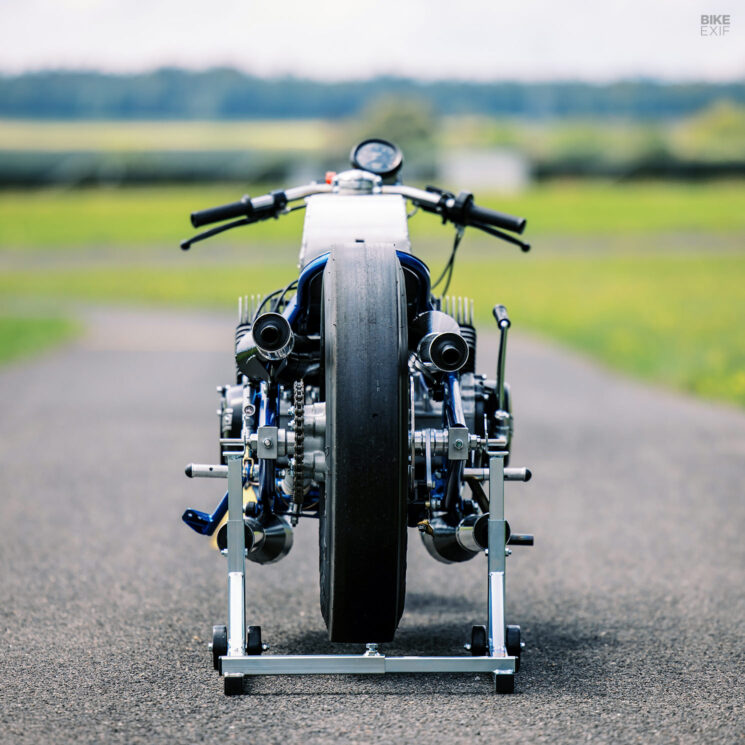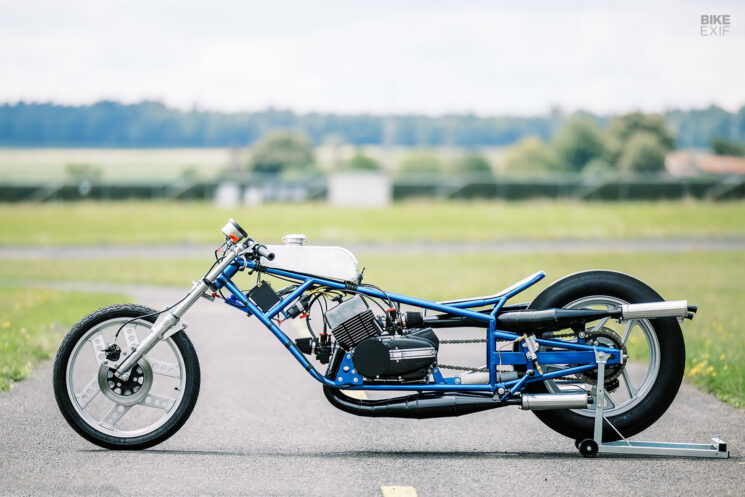
If you suffer from the misconception that Germans don’t know how to have fun, you’ve clearly never experienced the German sprint racing scene. Events like the popular Glemseck 101 are filled to the brim with wild and inappropriate motorcycles, all of which are guaranteed to make you smile. And what could be more fun than a twin-engine Yamaha RD350 drag bike?
This mad machine is the brainchild of Norbert Prokschi, a master mechanic based in the small Bavarian town of Johannesberg, just east of Frankfurt. He’s spent the last 37 years restoring classic British cars and motorcycles; everything from Jaguars and Morgans to Nortons and Vincents.
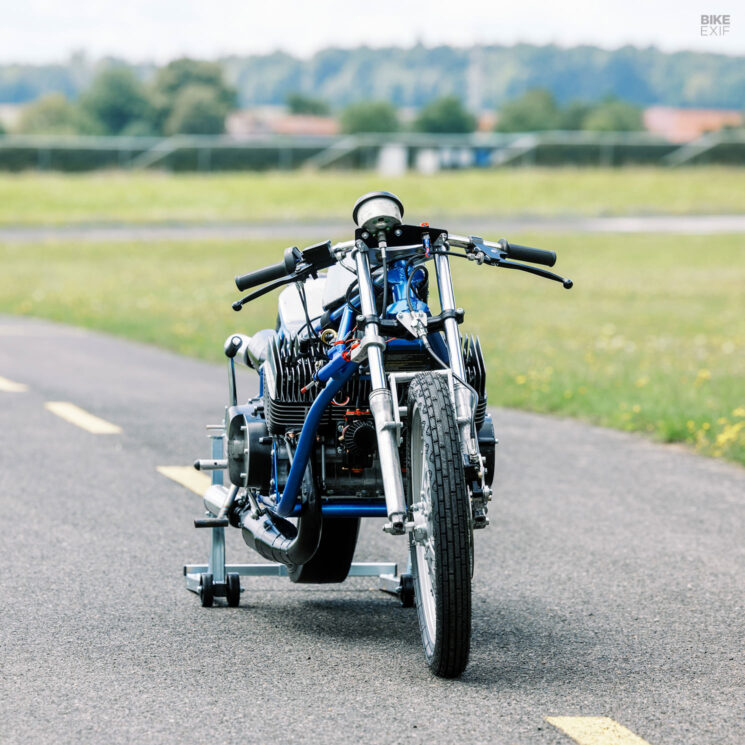
Norbert doesn’t exclusively work on English vehicles though—he’s restored a number of Japanese and Italian bikes too, and has been racing Yamaha TZ two-strokes for the past five years. It’s his experience with rebuilding those TZ motors that gave him the confidence to attempt this zany twin-engine Yamaha RD350 build. But the inspiration for the project goes even further back than that.
“I’ve been interested in drag racing since the early 70s,” he tells us. “What you’d see at the time in films from the USA, you could then see in real life at the US Army airbase near Hanau. The drag racing dates were always announced on a Saturday morning on the military radio station.”
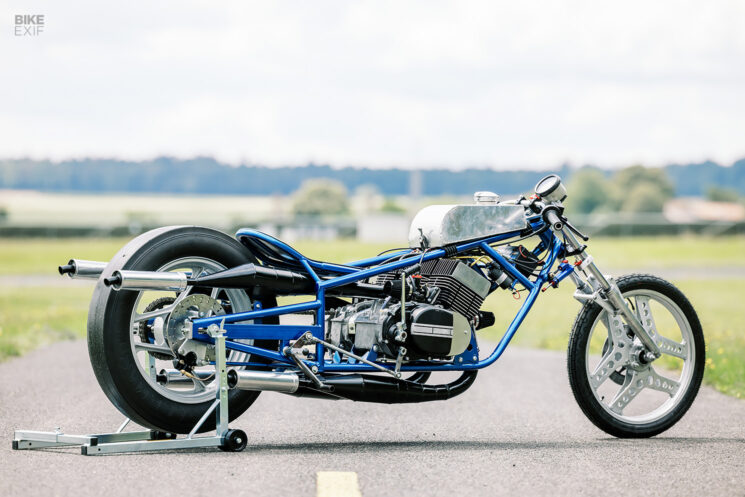
“About 20 years ago I discovered an original dragster from the 60s at an auto jumble in England. I restored it, but so far I have not had the opportunity to use it, since I don’t want to damage this historic machine.”
Norbert’s hesitance to race his vintage drag bike prompted him to build something that he wouldn’t mind hurling down the strip. So he came up with the idea of combining a pair of two-stroke Yamaha engines into one beastly power plant and sticking it in a bespoke frame. With two 1974 Yamaha RD350 engines in hand, he got cracking.
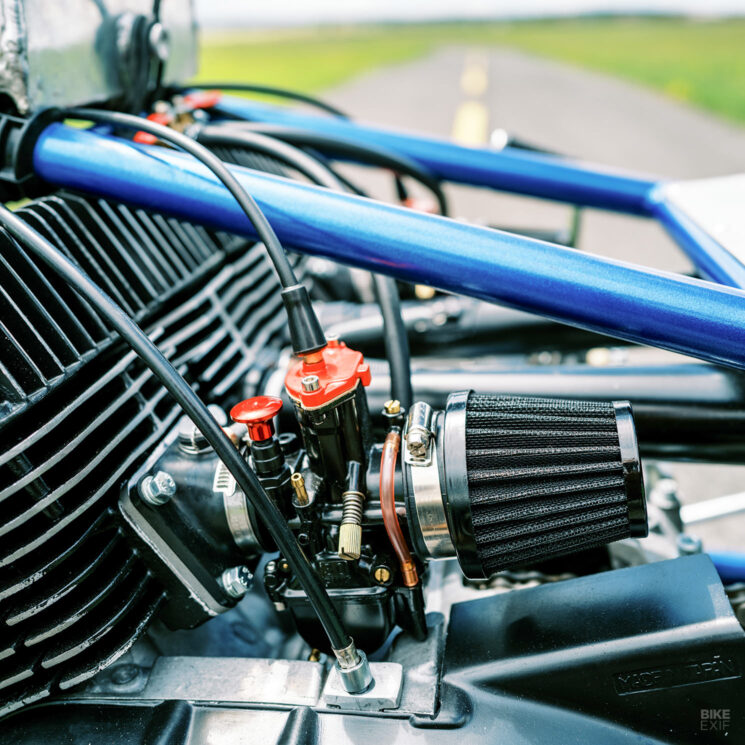
The work needed to turn two RD350 mills into one four-cylinder stonker could fill volumes, so Norbert’s just given us a broad overview. He started by splitting the cases of the two parallel-twin motors, then CNC-machined adaptor plates to mate them together. Then he grafted pieces from three different crankshafts together to create a single four-cylinder crankshaft.
Not content to stop there, Norbert also flipped the middle two cylinders around. He did this to make it easier to accommodate four separate exhausts, but also because it would look way cooler.
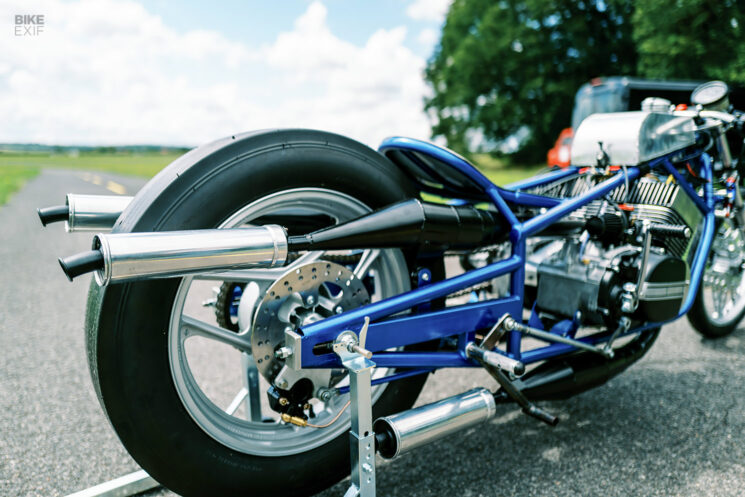
Extensive work was done on the cylinders, and the compression ratio was increased in the process. Norbert ditched the original RD350 six-speed transmissions, favoring a single five-speed gearbox from a vintage Yamaha R5. It sits on the right-hand side of the bike, along with the gear shifter.
The carbs are modern aftermarket units and are slightly larger than the originals. Each cylinder exhales through its own exhaust; Norbert had the headers, expansion chambers, and silencers made to his spec by a British company, then welded everything up himself. It looks bananas and likely screams like a banshee.
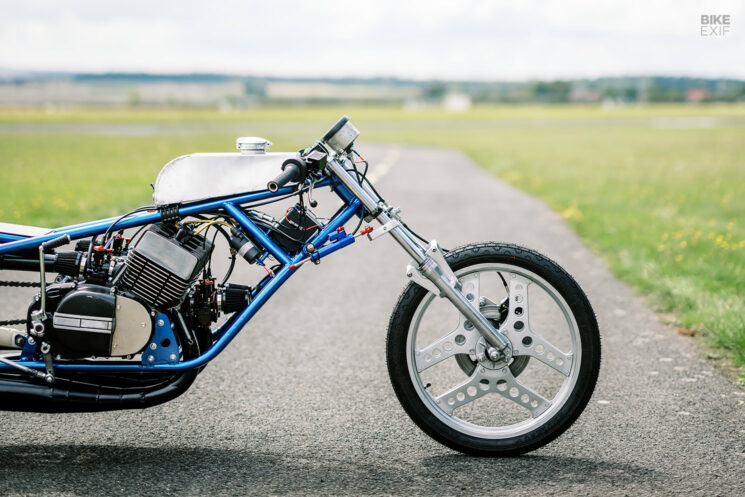
It’s obviously tricky to wedge an engine of this size into a regular motorcycle chassis, so Norbert built a new frame from scratch. First, his friend Heinz Lange drew the frame according to Norbert’s requirements. Then the two of them set up a jig and fabricated the hardtail frame out of steel tubing.
The front forks and 18” wheel were lifted from a 1980s Honda MBX80, while the 18” rear wheel comes from a first-gen Suzuki GSX-R750. A steering damper and custom-made fork brace add stability to the front end, while disc brakes at both ends handle stopping duties.
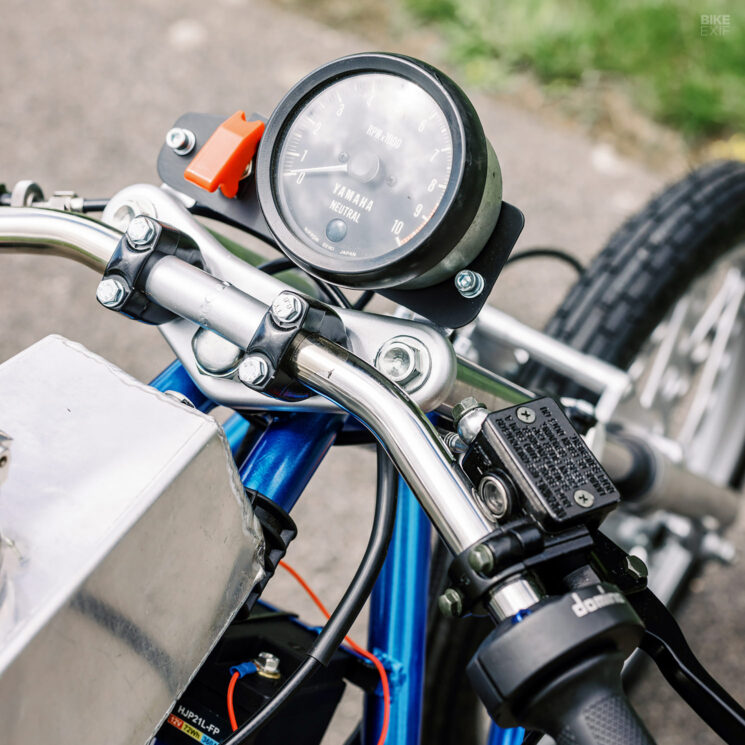
Norbert fabricated the Yamaha’s aluminum fuel tank and, uhm, ‘seat.’ He made the foot controls and linkages himself too, but the handlebars, grips, and switches are aftermarket parts. A single Yamaha RD350 tachometer dominates the cockpit.
With fresh paint on the frame and exhausts, but nowhere else, Norbert’s engineering and fabrication are on full display. His 700 cc two-stroke drag bike looks mental—and, more importantly, it looks like it means business. But is it quick?
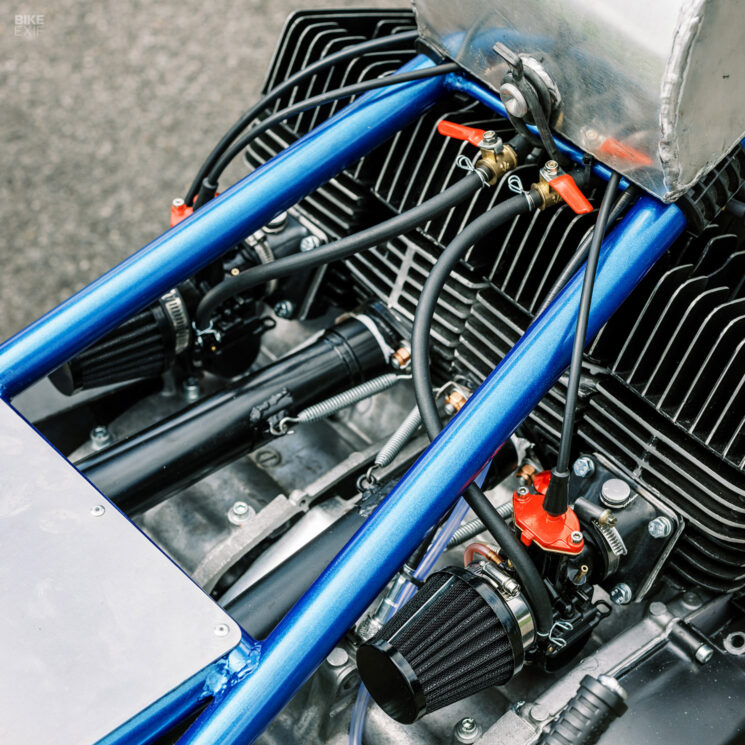
The truth is, Norbert doesn’t know yet. He’s only just buttoned it up, and is yet to start testing and tuning it. But once he has, he plans to unleash it on the classic racing circuit.
If we were his opponents, we’d be very afraid.
Images by, and with thanks to, Marc Holstein
